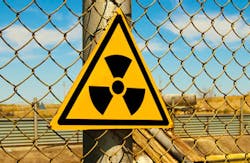Plans for the construction of the biggest uranium processing plant in China have been put on hold following a mass demonstration in the streets of the city where the plant was to be built, according to the China Post.
The $6 billion complex was proposed by the state-run China National Nuclear Corporation (CNNC) and China Guangdong Nuclear Power Corporation (CGNPC) to be built close to the southern city of Jiangmen. The facility was predicted to meet about 50 percent of the total demand for atomic energy in China. It was to be located on the Pearl River delta, which is a developed industrial area. The plant was a major component of the ongoing effort of the Asian country to reduce its reliance on coal and push the use of clean energy.
Plans for the uranium processing plant were revealed on July 4 and a 10-day public consultation was started. At the end of the consultation period, anti-nuclear activists summoned a demonstration. The protest was organized on social sites and took the form of an "innocent stroll". However, hundreds of people took to the streets of Jiangmen, located about 60 miles from Hong Kong. Protesters were met by police officers, but the demonstration remained peaceful.
Local protesters were not the only ones worried by the potential construction of the plant. Its vicinity to neighboring Hong Kong and Macau raised safety concerns, causing Macau officials to formally start talks with the Chinese province of Guangdong, where Jiangmen is situated.
RELATED: British mining company takes US gov't to court over uranium mining
In response to these reactions the the Heshan city government published a brief statement on its website, saying that it would not propose the CNNC project as a sign of respect for the people's wishes. Neither of the two companies could be reached for comment, the news source reported.
According to a Beijing-based nuclear power expert, who wished to remain unidentified, the decision to cancel the plans was surprising because a uranium processing plant is much safer than a nuclear power plant as it involves no reaction or fusion during the production process. However, the decision is in line with recent sensitivity towards environmental issues demonstrated by the Chinese government. Several major projects, including petrochemical and metal plants, have been put on hold or relocated after hostile reactions from citizens and activist groups.
At present, China produces 800 metric tons of uranium fuel at its plants in Sichuan province and Inner Mongolia in the north. The uranium used for this production is sourced from domestic mines, but imports from Kazakhstan, Canada and Australia add to that, the expert explained. The planned processing plant was to convert and enrich uranium and was intended to supply fuel for China's growing nuclear power capacity, which is predicted to reach between 60 and 70 gigawatts by 2020, up from the current level of 12.6 gigawatts.
The province of Guangdong is one of the country's largest nuclear power hubs, already operating five nuclear reactors and having a dozen under construction, the China Post said.
